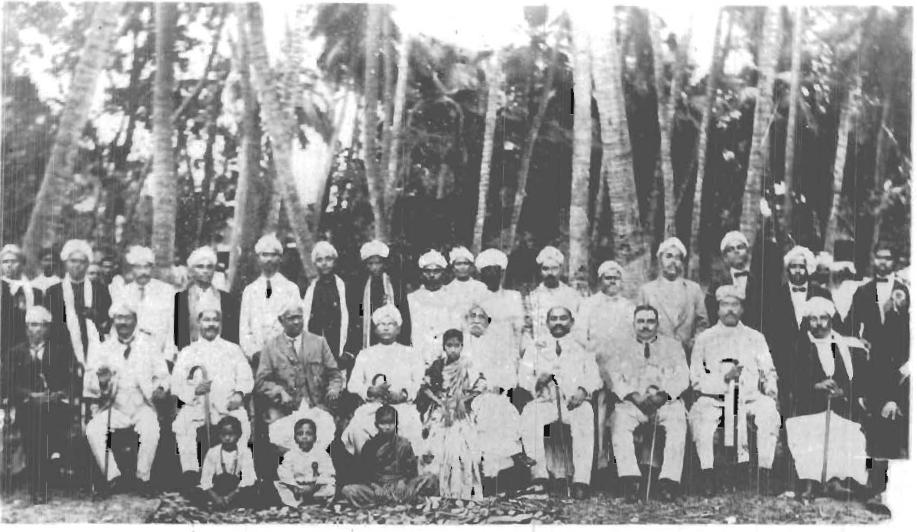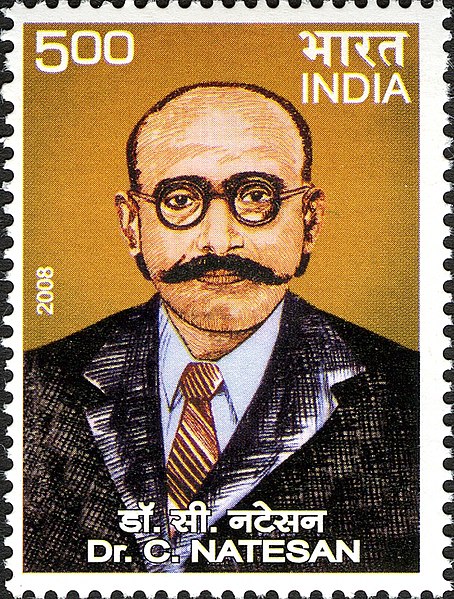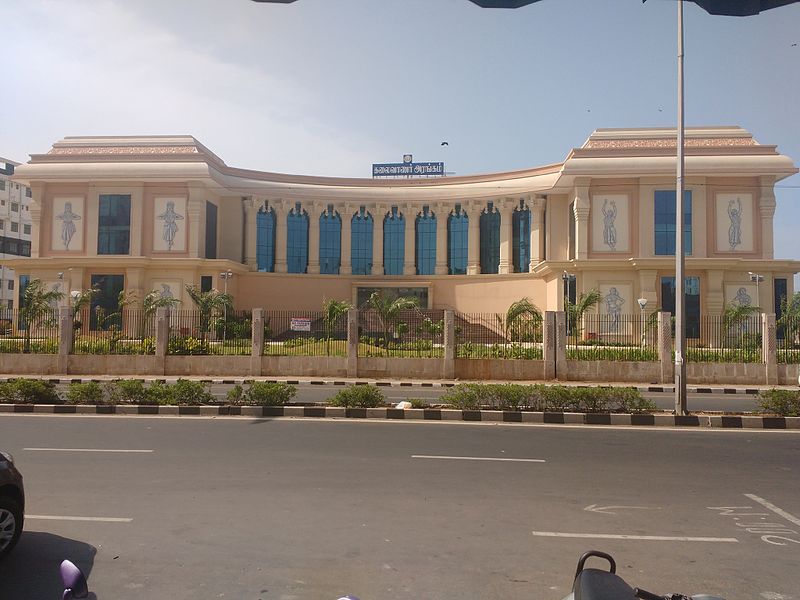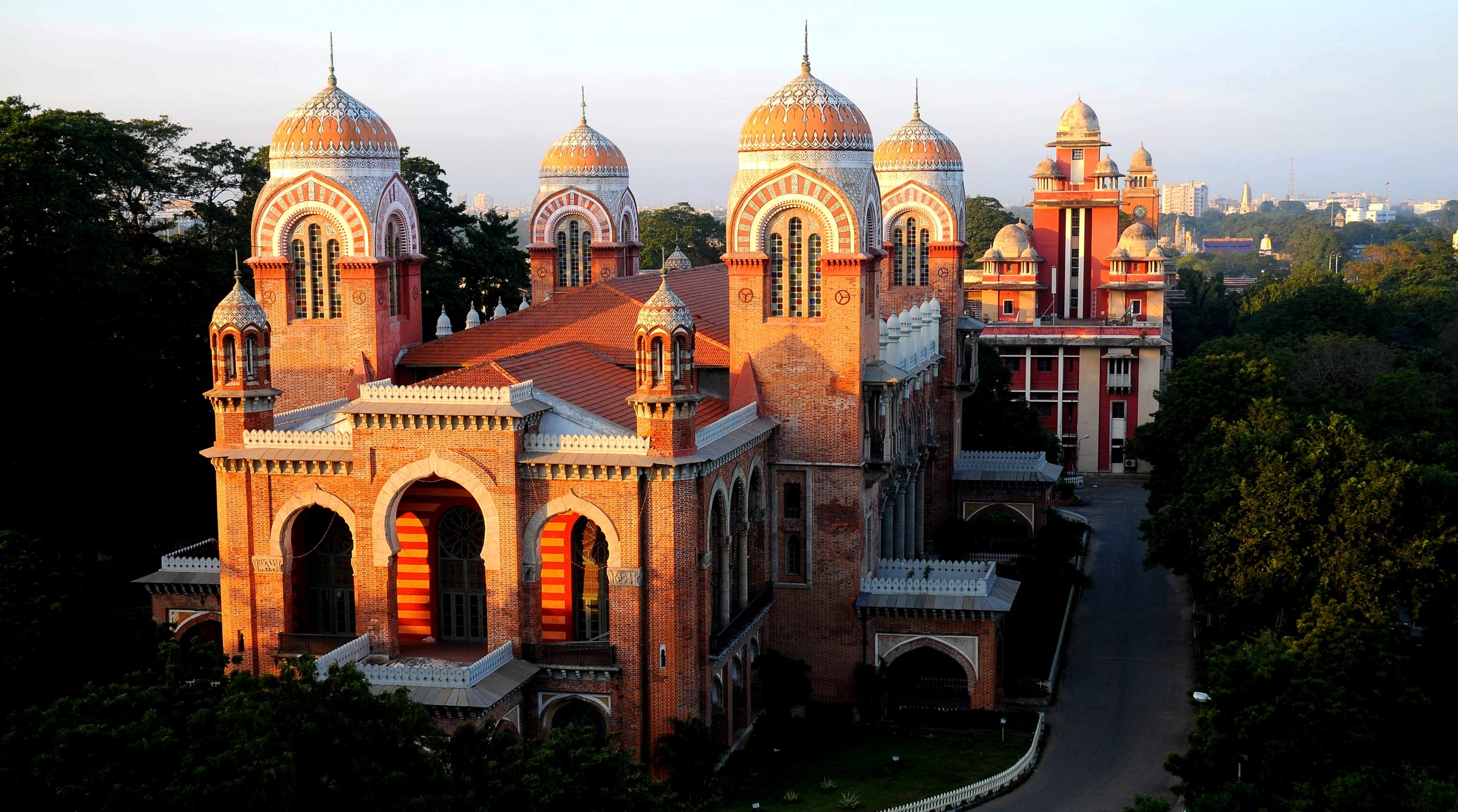
- Home
- News
- Analysis
- States
- Perspective
- Videos
- Education
- Entertainment
- Elections
- World Cup 2023
- Features
- Health
- Budget 2024-25
- Business
- Series
- NEET TANGLE
- Economy Series
- Earth Day
- Kashmir’s Frozen Turbulence
- India@75
- The legend of Ramjanmabhoomi
- Liberalisation@30
- How to tame a dragon
- Celebrating biodiversity
- Farm Matters
- 50 days of solitude
- Bringing Migrants Home
- Budget 2020
- Jharkhand Votes
- The Federal Investigates
- The Federal Impact
- Vanishing Sand
- Gandhi @ 150
- Andhra Today
- Field report
- Operation Gulmarg
- Pandemic @1 Mn in India
- The Federal Year-End
- The Zero Year
- Premium
- Science
- Brand studio
- Home
- NewsNews
- Analysis
- StatesStates
- PerspectivePerspective
- VideosVideos
- Entertainment
- ElectionsElections
- Sports
- Loading...
Sports - Features
- Budget 2024-25
- BusinessBusiness
- Premium
- Loading...
Premium

100 years of TN Assembly: How politics of representation played out in state
The primary reason why the present DMK government has decided to celebrate the centenary of the Tamil Nadu Legislative Assembly this year is because it was in 1921 that reservation was introduced for the first time in the state and country by the Justice Party, which became a pillar of social justice.

“It is our firm conviction that in India, for some time to come at any rate, every community has primarily to put its own house in order, so that, when it has to cooperate with other communities, possibly with higher social pretensions, it may do so, not as a dependent and helpless unit to be made a figure head or cats-paw of, but as a self-respecting and highly developed social...
“It is our firm conviction that in India, for some time to come at any rate, every community has primarily to put its own house in order, so that, when it has to cooperate with other communities, possibly with higher social pretensions, it may do so, not as a dependent and helpless unit to be made a figure head or cats-paw of, but as a self-respecting and highly developed social organisation, offering its willing cooperation for the promotion of common objects on terms of perfect equality.”
Thus said the ‘Non-Brahmin Manifesto’ published by the Justice Party in Tamil Nadu in December 1916.
Five years later, in 1921, the party whose primary objective was self-respect and equality—and later on became the root of Dravidian majors, DMK and AIADMK—came to power in the Legislative Council of Madras Presidency and passed the Communal GO.
This legislated reservation for the first time in India and allotted government jobs and higher education seats to different communities in specific proportions.
A hundred years later, following a petition filed by the DMK in Madras High Court, the Union government agreed to implement 27 percent reservation in All India Quota medical seats to Other Backward Classes from this academic year itself.
This is the primary reason why the present DMK government has decided to celebrate the centenary of the Tamil Nadu Legislative Assembly this year. It has taken 1921, the year of introduction of reservation, a pillar of social justice, as the base year and calculated the centenary from that year.
However, the AIADMK’s contends that the base year for the centenary calculation should be either 1937, the year when the first meeting of the Legislative Assembly was held, after the bicameral legislature introduced, creating a Legislative Council and the Assembly, or 1952, the year when all the citizens of the India got voting rights.
However, the tale of the centenary of the Assembly is not only about reservation. In a way, the history of Tamil Nadu Legislative Assembly is the history of politics of the state.
In the interest of non-Brahmins
The Justice Party’s manifesto used findings of a study by Sir Alexander Cardew, a member of the Madras Executive Council on how Brahmins were faring in government jobs.
“In his evidence before the Public Service Commission in 1913, described in detail, the relative positions of the Brahmins and the non-Brahmins in the Public Service of this province, not certainly as a champion of non-Brahmin interest, but with a view to show that if simultaneous examinations in England and India for admission into the Indian Civil Service, were introduced, the Brahmins, whom he characterised as “a small rigidly exclusive caste” would swamp that Service.”

Not only in government jobs but also in other local and public bodies, Brahmins dominated and the manifesto called it a “monopoly of political power”.
It was against such monopolisation that some influential non-Brahmin individuals came forward and formed an organisation named ‘Madras United League’ in 1912 headed by C Natesa Mudaliar. It was later renamed as Madras Dravidian Association.
In 1916, the elections for the Imperial Legislative Council (a precursor of Parliament of India) were conducted. A doctor named TM Nair was expected to be elected by the Madras Legislative Council (MLC) to the Imperial Council in Delhi. But the MLC chose Brahmin candidates BN Sharma, VS Srinivasa Sastri and KV Rangaswamy Iyengar. The same year, P Theagaroya Chettiar, lost the local council elections to the Brahmins.
All these losses pushed the trio of Natesa Mudaliar, Nair and Theagaraya Chetti, to found an organisation which could work towards the interests of non-Brahmins, known as South Indian Liberal Federation, on November 20, 1916. This organisation ran an English daily called ‘Justice’ and because of that the federation was identified later as ‘Justice Party’. In December that year, it published the manifesto.
In August 1917, the party organised its first conference in Coimbatore and promised to attain self-governance gradually and ensure proper representation to all communities.
At this time, the Montague Chelmsford Reforms paved the way for Indians to participate more in the governance of the country. The Government of India Act, 1919 further introduced the system of diarchy, under which departments such as police, law and order, land revenue, etc., were termed as ‘reserved subjects’ and remained under British control, and departments like education, public health, local governance, etc., were termed ‘transferred subjects’ and could be controlled by the elected representatives.
While the Congress was against such a system, the Justice Party supported it. In the first legislative council election held in November 1920, the Justice Party won 63 seats out of 98 seats. And then it was the proverbial ‘rest is history’.
A glorious past
“Madras was lucky then to have had Lord Willingdon as the Governor and Sir P Rajagopalachariar as the first nominated President of the Legislative Council,” said the then whip PT Rajan in a welcome note which he prepared for the Golden Jubilee celebrations of the Justice Party held in 1968. He said he considered the days he spent in the first Council as the “best period” of his public life.
He adds: “The Governor could have selected any three men of the party as ministers but he did not do so. Being well-versed in parliamentary practice, he called upon Sir P Theagaroya Chettiar to form the ministry. He declined the honour. This convention of calling upon the leader of the majority party to form the ministry has been followed since then. Then Mr A Subbarayalu Reddiar formed the first ministry with Raja Ramarayaningar, who later became Raja of Panagal, and Mr KV Reddi as his colleagues.”

He further goes on to record how the day to day conventions of the Council were carried on.
“In the first Council itself, parliamentary conventions and traditions were created and followed. There was ministerial responsibility to the legislature and collective responsibility in the Cabinet. Throughout the period of diarchy in Madras, meetings of the legislature were carried on in an orderly manner. Unparliamentary behaviour by members was almost unknown and dispersal of the council in pandemonium or disturbance of meeting by walk-out was unheard of. Visitors to India who attended the meetings of the Imperial Legislative Council at New Delhi used to pay a visit to Madras, as Madras was reputed for its observance of parliamentary procedure and conventions. They used to go back with a word of praise for the Madras Legislature.”
In those days, the period of the Council was only three years as opposed to five years now.
Besides passing the Communal GO, the other major achievement of this Cabinet was providing women suffrage. The British themselves gave their women voting rights only in 1918. In another three years, the Madras Presidency gave the women their voting rights. Though the party enacted a law to provide women voting rights in April 1921, the then Governor gave a go ahead to the law only in 1926. By 1927, Dr Muthulakshmi Reddy became the first woman legislator in India.
Evolution of Speakership
Initially the Speaker used to be known as the ‘Presiding Officer’ and was changed in the House of Commons in England in 1377. According to a thesis by M Kaliyaperumal of the University of Madras in 1992, the nomenclature of the Presiding Officer was changed in the General Scheme of the Government of India Act, 1935 to ‘Speaker’ and ‘Deputy Speaker’ both at the Centre and the Provinces.
In the 1937, Madras Presidency Legislative Assembly elections, the Congress won the mandate and came to power. When the Legislative Assembly met for the first time on July 15, 1937, it elected Bulusu Sambamurti as Speaker and A Rukmani Lakshmipathy as Deputy Speaker for the first time.
The Congress was in power for just two years till it resigned in 1939, in protest of India’s involvement in World War II. However, Sambamurti continued in his office till 1942. There were no elections after that and hence there was no Assembly or Speaker.
“In 1946, the Assembly elected J Shivashanmugam Pillai as Speaker, who remained in office till August 16, 1955. He was the first Speaker after Independence and he set a good example and conducted himself in an affable manner and maintained the dignity of the House,” writes Kaliyaperumal in his thesis The Office of the Speaker in Tamil Nadu: A Study’.
In his study between 1937 and 1987, Kaliyaperumal has found out that out of 11 Speakers, six of them had qualifications in legal studies, which was in accordance with the precedent set up in the British House of Commons. Also, nine of the Speakers have long standing experience in the Assembly.

Although the deputy speakers enjoy their own authority and can be considered for elevation as Speakers, they cannot claim the office as a matter of right. Till date only three of the Speakers namely, Pulavar K Govindan, PH Pandian and P Dhanapal, were elevated as Speakers from Deputy Speakers. Interestingly, the last two were from AIADMK.
While Speakers have exerted authority and independence in their own way, PH Pandian’s tenure was said to be a time of controversy due to his ‘sky-high powers’ claim.
“The most glaring case in which the Speaker’s impartiality was held in doubt was in respect of PH Pandian. His conduct of business was very controversial and was a subject of criticism. One way of exhibiting impartiality and independence is for the Speaker to resign from his party after his election to the office. This is being followed in England and N Sanjeeva Reddi did so in 1967 after his election as Speaker of the Lok Sabha. However, in respect of Tamil Nadu, the Speakers have not resigned from their respective political parties after their election to the Chair,” writes Kaliyaperumal.
In search of alternate space
Fort St. George in Rajaji Salai houses the Assembly. While the first structure of the Fort was built in 1640, the present Assembly building was constructed in 1910. It has a seating capacity of 260 (as of now the total strength of the house is 234).
Inside the Fort lies Council chambers and it was here that the first Legislative Council met between 1921 and 1937. Between July and December 1937, both the Legislative Council and Legislative Assembly met at the Senate House located in the University of Madras campus.
In January 1938, both the houses moved to Rajaji Hall, located inside the Omandurar Estate on Mount Road and the proceedings continued till October 1939. Between 1946 and 1952, the houses again moved to the Fort. In 1952, after the first Legislative Assembly elections, the member strength rose to 375 and because of space constraints, it moved to Kalaivanar Arangam inside Omandurar Estate.
Following the state reorganisation in 1956, the Assembly strength dropped to 190 and the houses again moved to the Fort. While the Assembly continued to work in its own place, the Legislative Council met in Assembly Hall instead of council chambers. Between April 20 and 30 in 1959, the Legislative Council met at Aranmore Palace in Nilgiris. From August 1959 to November 1986, it met in the Assembly Hall.
In 2004, the then chief minister J Jayalalithaa, decided to relocate the Assembly to Queen Mary’s College and later to Anna University campus. But both the plans were dropped due to huge uproar from the public. When DMK came to power in 2006, chief minister M Karunanidhi planned to shift the Assembly to a new building. Accordingly, a new secretariat was built on Mount Road where the Assembly met between March 2010 and May 2011. When AIADMK came to power in 2011, Jayalalithaa relocated the Assembly back to the Fort. From 2020, the Assembly has been meeting at Kalaivanar Arangam due to Covid-19.

Historic moments
Following the 1857 rebellion, the first Indian Council Act, 1861 was enacted in the British Parliament and the Madras Legislative Council came into existence. This primarily acted as a non-representative advisory body. This Council was expanded in 1892 and in 1909.
Until 1909, the members selected to the Council were called ‘nominated’ members and they were recommended to the Council by universities, municipalities and business associations. Under Morley-Minto Reforms, the members were ‘elected’ instead of ‘nominated’, although they were not elected directly.
While in 1892 the economically stronger section progressed, in 1909 the religious minorities and the non-Brahmin upper castes benefited much. In 1921, the Scheduled Castes started to have a say in the governance.
If the Justice Party’s entry into the Legislative Council in 1921 was considered as a historic moment in the Assembly, the 1937 happenings can be taken as the second historic moment, for it was in that year that the diarchy came to an end and the Legislative Assembly was introduced as a lower chamber and the Legislative Council became the upper chamber. Under the Government of India Act, 1935, provincial autonomy was given to Madras Presidency.
The next big moment came in 1969, when DMK founder CN Annadurai adopted a motion to change the name of ‘Madras State’ into ‘Tamil Nadu’. From then onwards, the Madras State Legislative Assembly, was known as Tamil Nadu Legislative Assembly.
In 1986, the then chief minister MGR abolished the Legislative Council. While Karunanidhi tried to revive it later in 1989, 1996 and 2010, but the succeeding AIADMK regimes rescinded his efforts. According to reports, his son and current Chief Minister MK Stalin has allegedly promised to revive the upper house in order to accommodate members of ally parties.
While critics discourage the move saying it is a waste of money and would only accommodate family members of ruling party leaders, observers say the revival of Legislative Council could pave way for representation of sections of society that couldn’t get represented in the Assembly. After all, the first council of representatives in the state had sought to give a rather fair representation to excluded peoples. And what better occasion than its centenary.

